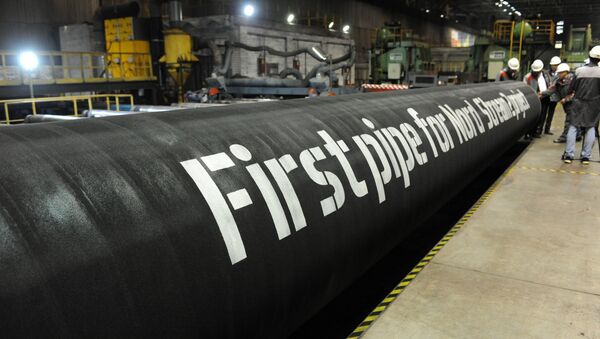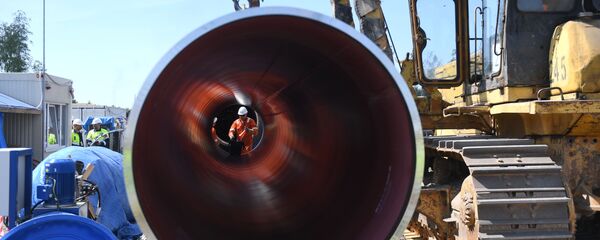German Foreign Minister Heiko Maas has told the media group Redaktionsnetzwerk Deutschland that the Nord Stream 2 gas pipeline "will be completed", but the question remains as to when.
Maas added that Germany takes decisions related to its energy policy and energy supply "here in Europe", saying that Berlin accepts "the fact that the US had more than doubled its oil imports from Russia last year and is now the world's second largest importer of Russian heavy oil".
"The US exercises its right to an independent energy policy, and we do too", the German Foreign Minister emphasised.
The statement comes a week after Maas said that Berlin's decision not to include the Nord Stream 2 project in its list of sanctions over the alleged poisoning of Russian opposition figure Alexei Navalny proceeds from the assumption that the gas pipeline is not a German-Russian venture, but an international project.
According to the top German diplomat, since several European countries are involved in the pipeline's construction, there should be an EU consensus regarding any sanctions against it.
Last month, he mentioned Nord Stream 2 in light of the Navalny case and added that Berlin "will put all options on the table and make a decision [on the project] at the appropriate time".
Moscow Warns not to Politicise Nord Stream 2 Project
Moscow has vehemently denied Berlin's Navalny-related "poisoning" claims, stressing that no poison was detected in the opposition figure's system before his transfer to Germany, and slamming the German government for its failure to provide Russia with any evidence to support its allegations.
Kremlin spokesperson Dmitry Peskov, for his part, told reporters last month that Nord Stream 2 is a commercial project, profitable for both Russia and the EU, and should not be politicised.
US Opposition to Nord Stream 2
Adding fuel to the complicated situation around the project is the constant threat of sanctions from the US, which has long opposed Nord Stream 2, claiming that the project would grant Moscow political leverage over Europe by increasing the latter's dependence on Russian gas.
Apart from the Russian energy giant Gazprom, five European companies are involved in the construction of Nord Stream 2, including France's ENGIE, Austria's OMV, the UK-Dutch company Royal Dutch Shell, as well as Germany's Uniper and Wintershall.
When completed, the pipeline will be capable of transiting up to 55 billion cubic metres of gas per year from Russia to Germany, thereby doubling the capacity of the existing Nord Stream network, and turning Germany into a gas hub.




